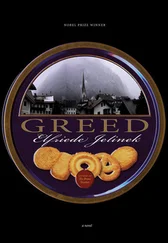Anna states that for that reason lust is the death of desire, because it is not only the consummation of desire but also its goal and thus its end. People go in pursuit of lust, yet it remains totally meaningless.
The class desert the show, saying: These two professors don't know what they're talking about. They've never copped hold of a cunt or a prick in their lives.
Sophie Pachhofen goes gazelling about the rooms that pong of chalk, hunting in her purse for money to buy the notorious roll for break and a Coke. Envious, Anna hides her thick wedge of bread and dripping; Mummy spread it for her and put her whole heart into it because Anna is her favourite child (she is a woman, like herself), Rainer is more of a Daddy's boy. Love of Sophie hits Rainer like a karate chop in the neck, and he says to this girl whom he secretly adores: The carnal presence of the other is increasingly lost from sight to the consciousness, which ingurgitates our own carnality instead, this being its ultimate objective. So now you know, Sophie. One must act accordingly.
Rainer digs a fingernail into the palm of his hand. He is so terribly keen to have Sophie. She herself wants it just as badly. She simply won't admit it to herself.
Rainer informs Sophie that he is the beast of prey and she is the prey. Sophie says, I don't get it, what's all this about. Do you fancy coming to play tennis some time? Rainer says he only ever plays on his own court. Sophie's gaze strays beyond him. Rainer says she should take it to heart: the desire to caress becomes the desire to be caressed. One wants to feel one's body blossoming, to the point of nausea. Has Sophie (he speculates) ever felt that? If not, he'll show her what's meant.
Sophie leaves.
Everything gives me the creeps, especially today, says Anna.
As soon as Sophie returns from the grocer's with the salami roll, Rainer will order her to hand it over to him. It will be a trial of wills. There she comes now. Experimentally, adopting a brutal expression, Rainer places a number of fingers on Sophie's jugular. Ouch, are you crazy, there's a whole lot of nerves in the neck that you can kill off unintentionally. Who said anything about unintentionally, says Rainer. I saw it in a French film.
You don't go killing people just because you saw it in a film.
Who knows what I'm capable of, says Rainer. All I know is that I'm capable of inconceivable cruelty and keep a firm grip on myself so that I don't really behave that way.
Anna is lurking in the background, lying in wait for half a roll that's going free. I brought you one too, says Sophie, offering it. With fish and onions, how you like it. Great!
As soon as Anna has gobbled her half roll she goes out to the toilet and sticks a finger down her throat. Out they come again, the fish and onions, yurgh, only in reverse order. Anna contemplates what she has thrown up, then pulls the flush. She feels as if she consisted entirely of filth. No wonder. After all, she unceasingly brings the filth with her from home, like a magnet.
Once, when she was still a child, she watched Mummy in the bathtub. Contrary to her usual bathtime practice, Mother was wearing an old pair of white panties, which billowed out like a sail in the water. There were red stains on them. Revolting. A body such as that is simply an appendage to a person, and one that easily spoils. It isn't the main thing. Even though there is a lot you can buy to put inside the body or drape on it. Whenever Anna sees something white she promptly wants to stain it.
Anna's thoughts turn constantly and compulsively to unpleasant things that slip past the checkpoint in her brain. It's one-way traffic: the barrier's raised to let things in but doesn't let them out. That brain of hers is crammed with unpleasantness, and the emergency exit is nailed shut. Take (for instance) the humiliating memory of how a number of mothers complained about her to the teacher some years ago. Anna's sexuality had been issuing from her lips in the form of gross jokes (just as Rainer's sexuality too is only ever a matter for the mouth). Supposedly Anna's jokes had poisoned the childlike souls of various classmates. That was when Anna's difficulties in speaking first began. More and more often her tongue would say no, I'm not doing anything today.
Right now Anna is once again making stains. What she'd like best would be to see Sophie's surface area grubbied about like this. But it is made of the finest repellent material: the material repels dirt.
Another little example. Anna is fourteen years old. She is sitting naked on the floor, legs apart, trying to deflower herself with the aid of an old shaving mirror and a razor blade, to rid herself of a membrane that is supposedly down there. But she knows nothing about anatomy and cuts into her perinaeum by mistake. Which bleeds fearfully.
When Anna emerges into the open from the reeking school toilet, naturally it's snow-white Sophie who whirls past her first, burying her. Sophie the avalanche. Want to stop by at my place this afternoon? Okay.
Anna pumps away energetically and keeps it up for a long time, but there is no blood (as there was that time back then), no ink, no raspberry juice and no vomit.
Sophie slips nimbly past her and heads outside. Into the light. Where it is so light that Sophie no longer stands out, and disappears without trace.
HANS SEPP'S father was in the labour movement, and was killed at Mauthausen concentration camp. As if it had never witnessed such things, the light of the setting sun breaks brightly upon the Kochgasse windows, burning with a greater intensity than it has on leaving the sun. You have to close your blinded eyes for protection against the violence of Nature. The people who live here have experience in turning a blind eye to things.
Across the road there is a little shop selling knitting and sewing equipment. Brightly-coloured yarns and wools on little crocheted doilies; the pointed needles are inside the store. Touched by the things of everyday life, Hans the natural creature enters the council block where he lives with his mother. Obdurately he looks right through the old lady and her daughter (both of them wearing black work smocks); they are serving ladies who do handicraft work at home. Hans's mother does work at home too. In their untidy home she addresses envelopes. It's paid work, mind you.
There is also something natural about the potatoes and oranges and bananas at the greengrocer's. Anna and Rainer would be certain to compare these things with something they know from the artificial, man-made world of poetry, thinks Hans arrogantly. Nature is much more vitally present to me. I have my finger on the pulse of the age. I let things come and go, in and out of me. In Laudongasse the number 5 tram sets up an almost continuous squealing, approaching the stop by the baker's. I'm not yet spoilt by art and literature, thinks Hans.
His mother also gazes into the reflection of the setting sun. As she does so, her head and heart are occupied with social democracy, which has often been a disappointment to her. If there are many more disappointments she will try the Communists. Where did you get that pullover, Hans? That cashmere wool is a class or two higher than what our budget will run to. Mother sets fire to a thread and can tell from the stench that it's real wool. Hans (returning home from the Elin Union, the firm where he is being trained to be an electrician) promptly informs her that he was given the pullover by his friend Sophie, whose parents are rich. He is still the man and she the woman. And things are going to stay that way. He'll see to that. If you go on like that you'll betray the cause of the workers without realising you're doing it, says Mother. Hans goes into the kitchen, the only room that is heated, and pours a glass of milk so that he will still be able to go in for a lot of sport. He sleeps in a tiny closet, Mother in the cold living room. Screw the working class, long live rock 'n' roll. It's the class you belong to. Not for much longer, if I can help it, I'm going to be a gym teacher or maybe something even better, who knows.
Читать дальше












